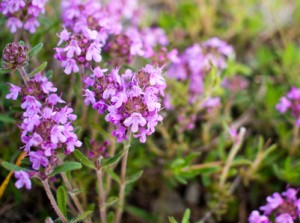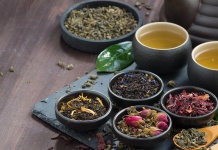This is a FACT.
Instead of harsh, synthetic creams that irritate the skin – wouldn’t you prefer to use safe, natural thyme for acne treatment?
If you suffer from acne it is likely that you’ve tried every cream, wash and acne system available on the market. You are not alone! 95% of us will experience acne at some point in our lives. There is no cure for acne but you can treat and control it with proper nutrition and good skin care habits.
Acne treatment is a multi-billion dollar industry and that does not include approximately 40% of those who have acne and do nothing at all to treat it.
Does Acne Only Affect Teens?
Sebum [oil produced by your skin’s glands] and dirt from your skin cause clogs in your pores [hair follicles found all over your body] which result in blackheads. Sometimes gently cleansing your skin can rinse the pores and clear the skin.
For those who suffer from chronic acne, these blackheads can become infected, hard to the touch and pus-filled. They have a red, inflamed appearance and can be painful.
Most acne appears during puberty and can last as long as a decade. Men experience acne more severely in their teenage years but women are more likely to struggle with acne well into adulthood.
It is most common to find acne on the face but it can also occur on the neck, upper arms and shoulders, chest and back.
What Causes Acne?
A change in hormone levels is the primary cause of most acne. An increase in hormones during puberty stimulates the body to create more sebum, which causes clogs to the pores. Bacteria begin to grow in the clogged pores, resulting in blackheads and whiteheads.
Clogged pores become infected and swelling results. Sometimes the pore wall collapses under the pressure and a pustule forms in the tissue around the pore.
Inflammation is another proven cause of acne – often as part of the immune response when you’re sick or fighting infection elsewhere in your body.
Not all acne is created equal. If your skin is sensitive you may experience an intense outbreak of acne while someone else may not react measurably to changing hormone levels or inflammation.
Though stress and diet alone may not cause acne – they are known to aggravate it.
Thyme for Acne Flare-ups
A study conducted at Leeds Metropolitan University found that Propionibacterium – the bacteria that causes infection leading to acne flare-ups and skin cysts – responded best to thyme of all the herbs tested. Lead researcher, Dr. Margarita Gomez-Escalada, explained that tinctures were made by steeping herbs in alcohol for long periods of time and drawing out the compounds being studied.
Marigold and myrrh were included in the research and also showed positive results, but only the antibacterial effect of thyme produced better results than tests done with benzoyl peroxide. 
Benzoyl peroxide is the active ingredient in over-the-counter (OTC) acne creams and facial cleansers, and people with sensitive skin experience several side effects that include extreme irritation and burning.
“We now need to carry out further tests…and work out at the molecular level how these tinctures are working. If thyme tincture is proven to be as clinically effective as our findings suggest, it may be a natural alternative to current treatments. Herbal preparations are less harsh on the skin due to their anti-inflammatory properties while our results suggest they can be just as, if not more, effective than chemical treatments.”
5 Worst Habits If You Suffer From Acne
- Tanning does not “cure” acne – it camouflages the redness and scarring. By constantly drying out the skin, your body is stimulated to make more oils, which results in more breakouts. Tanning prematurely ages skin and can lead to skin cancer.
- Repeated, unnecessary face washing dries out the skin and stimulates sebum production. Follow the directions on your product exactly.
- Stop picking your breakouts. You spread bacteria, imbed the oils and dirt deeper into the inflamed pore and risk scarring.
- Give a treatment at least 4-6 weeks of consistent use before you determine that it doesn’t work. Choose one cleanser, one exfoliating product and one moisturizer – use them as directed and no more.
- Don’t avoid using sunscreen or a light moisturizer because you think your face is too “oily” and hydrating products will make it worse. You need a gentle moisturizer – preferably one that contains sunscreen – to keep your skin from drying out.
Thyme – Not Just For Pasta Anymore
Delicious and nutritious, repeated studies have shown that thyme is excellent for heart and central nervous system health and has been used as an aromatic medicinal treatment for centuries. Respiratory symptoms related to coughs, bronchitis and asthma are eased with the use of thyme oil.
It is often used in incense and is native to Asia, Europe and the Mediterranean – though we now cultivate it in the United States.
Fresh is best but all forms of thyme are excellent sources of vitamin K, iron, manganese and calcium.
As more research is done on using safe and effective thyme for acne treatments, other herbs that help to eradicate acne may also be discovered. In the meantime, check Underground Health Reporter’s archives for other natural methods to achieve beautiful, glowing skin.




